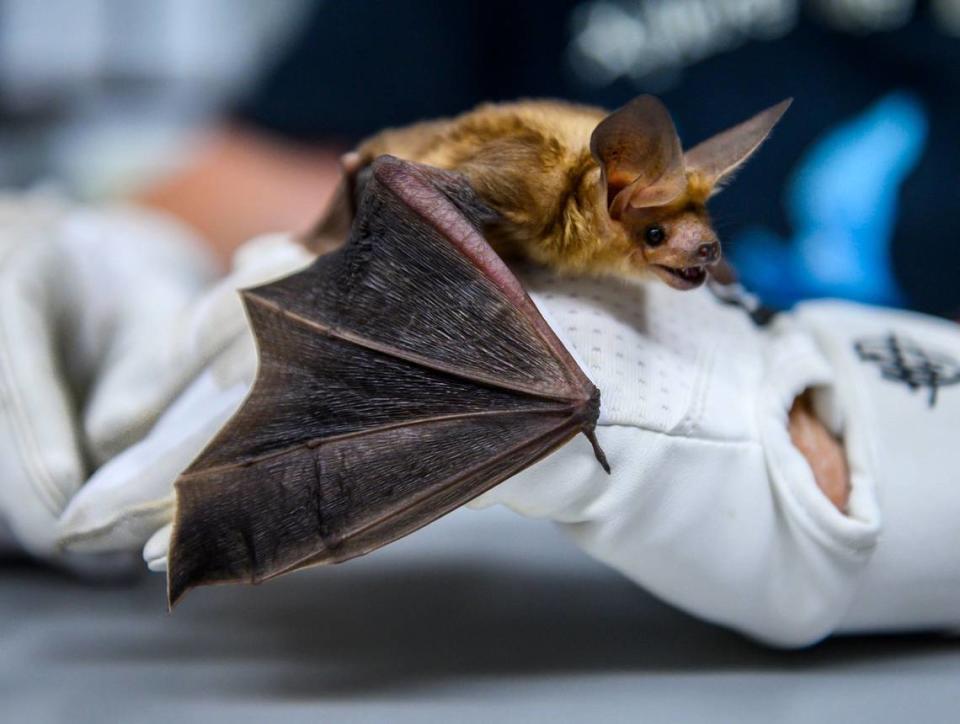At least one person exposed to rabid bat in Columbia, health officials say
One person was exposed to a rabid bat found in Richland County, the South Carolina Department of Health and Environmental Control said Monday.
The bat was sent to DHEC’s lab for testing on May 13, and was confirmed to have rabies a day later, officials said in a news release.
The animal was discovered in Columbia, in the area of Converse Street and Clemson Avenue near Crayton Middle School, according to the release. That’s close to Forest Drive and A.C. Floria High School.
The person has been told to seek medical care, health officials said. Further information on the person’s condition was not made available.
DHEC officials said if a pet is found with unknown wounds it could have been exposed to rabies, and the owner should call 803-896-0620 during normal business hours, or 888-847-0902 at other times.
Getting pets vaccinated for rabies is the best way to protect against the disease, DHEC said.
No pets are known to have been exposed to the bat in this incident, according to the release.
“Rabid bats have been known to transmit the rabies virus to people and pets,” DHEC’s Rabies Program Team Leader Terri McCollister said in the release. “People don’t always realize they’ve been bitten since bat teeth are tiny and bites are easy to overlook. Because of this, you should always assume a person has potentially been bitten when they wake up to find a bat in a room or tent; a bat is found where children, pets, or persons with impaired mental capacity (intoxicated or mentally disabled) have been left unattended; or a person or pet has been in direct contact with a bat.”
If you think you’ve been exposed to a rabid animal, immediately wash the affected area with plenty of soap and water, officials said.
Never handle a bat or any wild or stray animal — alive or dead — with your bare hands, according to the release. Any bat that could have had potential contact with people, pets, or livestock should be safely trapped in a sealed container and not touched, officials said.
Additionally, never release a bat that has potentially exposed a person or pet, because it no longer can be tested for rabies, according to the release.
“Any mammal has the ability to carry and transmit the disease to people or pets,” McCollister previously said. “In South Carolina, rabies is most often found in wildlife such as raccoons, skunks, foxes, and bats, but pets are just as susceptible to the virus. If you see an animal in need, avoid touching it. Contact someone trained in handling animals, such as your local animal control officer, wildlife control officer, or wildlife rehabilitator.”

This bat is the third animal in Richland County to test positive for rabies in 2021. There have been 28 cases of rabid animals statewide this year.
In 2020, eight of the 168 confirmed rabies cases in South Carolina were in Richland County, according to the release.
“If you believe that you or someone you know has had contact with or been potentially exposed to this or another suspect animal,” please seek medical care, DHEC officials said.
Health officials said an exposure is direct contact — possibly through broken skin or mucous membranes in the eyes, nose, or mouth — from a bite, scratch, or contact with saliva, body fluids, or brain/nervous system tissue from an infected or possibly infected animal.
“Although bats can carry rabies, not every bat is infected with the virus. Bats are an important part of South Carolina’s ecosystems and deserve a healthy degree of respect just like all wild animals,” McCollister said. “You cannot tell if a bat, or any other animal, has rabies by simply looking at it. Rabies must be confirmed in a laboratory. Unusual behavior in bats that might indicate the animal has rabies includes daytime activity, inability to fly, and being found in places they are not usually seen, like in your home or on your lawn.”

